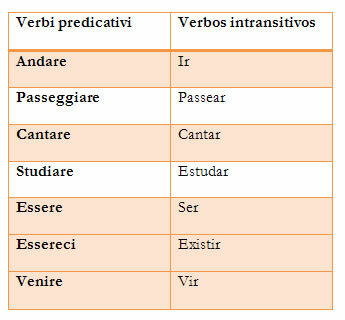Dicono che richonoscere il Complement Indirect in this sentence is a complete po’, perché per individuarlo è It is necessary to carpire your verbal regenza, ossia, if the complement of the verb is correct the introdotto of a preposition oppure no. The question testo osserverai the meaning of the indirect complement: concessional, limitazione and di paragone attraverso esempi. Good letter! /It is often said that recognizing the indirect complement in the sentence is a little tricky, because to identify it is necessary to understand about verbal rulership, that is, whether the complement of the verb is ruled or introduced by a preposition, or do not. In this text you will see the meaning of the indirect complements of concession, limitation and comparison through examples. Good reading!
 Indirect complement: concessional / Indirect complement: concession
Indirect complement: concessional / Indirect complement: concession
Note that it is a complement that indicates what specifies which nonotant which avviene a situation. Always respondà alle domande: a dispetto di che cosa?, nonostante chi?, nonostante che cosa?. Stia attento perché is introdotto da – despite, nonostante, a dispetto di. Osserva gli esempi. / Note that it is a complement that indicates or specifies something or someone despite the occurrence of a situation. He will always answer the questions: despite what? In spite of who? Be aware that it is introduced by “nevertheless, in spite of, in spite of”. Look at the examples.
Esempi: / Examples:
1) he is still a lavorare, in spite of illtempo. / He went to work despite the bad weather.
2) Abbiamo avuto buon esito,the dispetto i had a problem with carmine. / We were successful despite the problems with Carmine.
3) Nonostantil freddo, Luigi is venuto. / Despite the cold, Luigi came.
 Indirect complement: di limitazione / Indirect complement: of limitation
Indirect complement: di limitazione / Indirect complement: of limitation
As the name dice, this complement limits the indica between what limits the value ciò che si afferma. Important sapere che always respondà alle domande: in relazione a che cosa?, limited to che cosa?. Stia attento alle preposizione che introduce it: di, in, da, a, per, con. Può essere anche introdotto da locuzioni come: rispetto a, as for, limited to. Osserva gli esempi. / As the name implies, this complement limits or indicates within what limits something has value over what is stated. Important to know that he will always answer the questions: in relation to what? Limited to what? Pay attention to the prepositions that introduce you “from, into, by, to, to, with”. It can also be introduced by phrases like “with respect to, as to, limited to”. Look at the examples.
Esempi: / Examples:
1) Luigi is tall height. / Luigi is tall in stature.
2) Farming issue is released fatto the bro. / This work is only done by hand.
3) La donna is kind good cheer. / The girl is kind of soul.
Do not stop now... There's more after the advertising ;)
 Indirect Complement: di paragone / Indirect Complement: Comparison
Indirect Complement: di paragone / Indirect Complement: Comparison
The complement of the paragone determines a confrontation, indicates the second finish of the paragone, potentiating a persona, a animale the one thing qualsiasi messi a confrontation col cousin finish by mezzo di a comparison of maggioranza, uguaglianza and minoranza. Note che always respondà alle domande: di chi?, how much che cosa?, how much chi?, di che cosa?. Osserva le preposizioni che introduce it: di, che, eat, how much. Vedi gli esempi. / The comparison complement determines a confrontation, indicates the second comparison term, which can be a person, an animal or anything placed in confrontation with the first term by means of a comparative of superiority, equality or inferiority. Note that he will always answer the questions: Whose? As for what? As for who? From what? Note the prepositions that introduce you “of, that, how, how much”. See the examples.
Esempi: / Examples:
1) Giulia is piùalta diRoberto. (paragone di maggioranza) / Giulia is taller than Roberto.
2) Leggere il giornale is important how much legger il book. (paragone di uguaglianza) / Reading the newspaper is as important as reading the book.
3) Lucia is less fedele carla. (paragone di minoranza) / Lucia is less faithful than Carla.
Osserevassione: / Note:
On the subject of the last point, it is possible to access the testi sull'argomento. I accessed: "Comparative: uguaglianza" and "Comparativi: maggioranza and minoranza”. / Regarding this last point, it is possible to access texts on the subject on the website. Go to: “Comparative: uguaglianza” and “Comparativi: maggioranza e minoranza”.
Hot! / Tips!
| Indirect south complement is possible to access altri testi. Vedili!/ About indirect complement, it is possible to access other texts on the site. Look!“Complementi indirect: di abbondanza, di allontanamento and di argomento”, “Indiretti complement: di colpa and pen, di denominazione e di età”, “Indiretti complement: di fine, di materia e di qualità”, “Complementi indirect: distance, distributive and esclusione”, “Indiretti complement: motorbike da luogo and motorbike per luogo”, “Indirect complement: di causa, di compagnia and di unione”, “Indirect complement: di luogo”, “Indirect complement: di mezzo and di Modo”, “Indirect complement: di tempo”, “I complemented frasali”, “I added indirect: di specificazione e di finish”, “Puntate da riconoscere i complementi di luogo”. |
Isabela Reis de Paula
Brazil School Collaborator
Graduated in Languages with Qualification in Portuguese and Italian
By the Federal University of Rio de Janeiro - UFRJ
Would you like to reference this text in a school or academic work? Look:
PAULA, Isabela Reis de. "Complementi indiretti: concesivo, limitazione e di paragone"; Brazil School. Available in: https://brasilescola.uol.com.br/italiano/complementi-indiretti-concessivo-limitazione-di-paragone.htm. Accessed on June 29, 2021.

